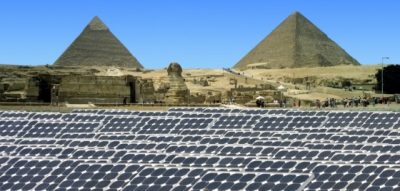I introduced Green Prophet readers to environmental e-learning and Laurie updated us with details on Mitx, Coursera and Udacity environmentalism courses in Februrary 2013. A new term has just begun with a wide selection courses related to environmentalism. So this is a good time for a refresher on how Massive Open Online Courses (MOOC) work.
I will also provide a list of upcoming courses in green energy, sustainability and other aspects of environmentalism.
MOOC courses are made possible by the Internet. Course lectures are delivered via streaming media, often Youtube or podcasts for off-line viewing, sometimes with embedded examps and quizzes. Electronic textbooks are made available either to read on your computer or via an iPad, Kindle or other ebook reading device. But one of the most interesting aspects of these courses is that they are global.
I’m currently signed up for Pennsylvania State University’s course entitled; Energy, the Environment and Our Future which introduces itself with, “Get Rich and Save the Earth…Or Else! Learn about the past, present, and possible futures of human energy use.”
Its first assignment asks students to tell stories about their experience with energy and submit pictures which explain what energy means to them.
Here is the interesting thing about this and other MOOC courses. It isn’t possible for its instructor, Dr. Richard Alley, or any other instructor to grade the thousands or tens of thousands of assignments which are submitted globally. So some assignments are graded by computers and others are scored with a peer-to-peer ranking system. Engaging and controversial discussions are supposed to rise to the top.
There is also an advantage in scoring, commenting and critiquing other people’s work which encourages people to give each other feedback. I found that this worked reasonably well in University of Illinois’ Introduction to Sustainability course.
Yes, it is possible to game the system by having a group of friends vote for you and take advantage of your timezone, for the most part people taking the course are good and MOOC courses don’t succumb to the academic equivalent of an ecological tragedy of the commons.
The new year brings us many more new courses. I’ll begin with the courses which begin early in January 2014. Some began this week so if you’re interested, sign up so you can catch up on the lectures and homework!
- January 2014 – Global Sustainable Energy: Past, Present and Future from the University of Florida.
Students will explore energy consumption patterns including individuals, countries and the entire globe. These patterns will include all sectors of the global economy from fully developed countries to developing nations. New energy sources will be investigated and international solutions to future needs will be analyzed. - January 2014 – Climate Change in Four Dimensions from the University of California at San Diego.
This course views climate change from a variety of perspectives at the intersection of the natural sciences, technology, and the social sciences and humanities. - January 13, 2014 – Energy 101 from Georgia Institute of Technology
As a society and individually, we use energy every moment of our lives to improve our quality of life. Energy 101 will develop the big picture and connect the details of our energy use, technology, infrastructure, impact, and future. - January 13, 2014: The University of North Carolina at Chapel Hill offers an even more specialized environmentalism course entitled, Introduction to Environmental Law and Policy
Environmental law may be the one institution standing between us and planetary exhaustion. It is also an institution that needs to be reconciled with human liberty and economic aspirations. This course considers these issues and provides a tour though existing legal regimes governing pollution, water law, endangered species, toxic substances, environmental impact analyses, and environmental risk. - January 21, 2014: The Age of Sustainable Development from Columbia University in New York City.
The Age of Sustainable Development gives students an understanding of the key challenges and pathways to sustainable development – that is, economic development that is also socially inclusive and environmentally sustainable. - February 14, 2014: 12.340x: Global Warming Science via edX/MITx OpenCourseware which is unfortunately experiencing technical difficulties at the time of this writing.
- Ongoing: Technology Entertainment Development (Ted) has numerous environmentalism talks available for viewing at any time.
We’re more than a week into the year 2014. Are you ready for a New Year’s resolution to learn more about the environment? If so, MOOC environmentalism courses are ready for you!
Photo of girl with laptop via Shutterstock.




8 thoughts on “Sustainable, Online Green Courses for 2014”
Comments are closed.